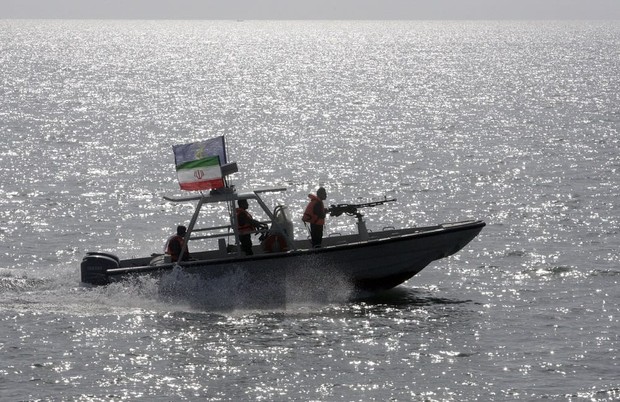FILE- In this Monday, July 2, 2012 file photo, an Iranian Revolutionary Guard speedboat escorts a passenger ship, unseen, near the spot where an Iranian airliner was shot down by a U.S. warship 24 years ago killing 290 passengers. The U.S. Navy again has accused Iranian patrol boats of harassing an American warship in the Persian Gulf, this time with one Iranian Revolutionary Guard vessel stopping right in front of the USS Firebolt and nearly causing a collision. (AP Photo/Vahid Salemi, File)
On Friday, following Iran’s destruction of a U.S. drone and President Trump’s decision to call off a planned retaliatory strike, House Speaker Nancy Pelosi (D-CA) said Democrats notified the president he could not initiate a strike against Iran without Congressional approval.
On Monday Trump responded via an exclusive interview with Hill.tv outside the White House: ”
“I disagree [with Pelosi], most people seem to disagree but I do like keeping them…they have ideas, they’re intelligent people, they come up with some thoughts. I actually learned a couple of things the other day when we had our meeting with Congress which I think helpful to me. I do like keeping them abreast but I don’t have to do it legally.”
The War Powers Resolution of 1973 allows a president 60 days to work with Congress on gaining their approval once they are informed within 48 hours of a president’s military strikes against a hostile nation. A president then has 30 days to end those operations. However, the The Authorization for Use of Military Force (AUMF), a Bush-era resolution passed after 9/11, gives the president authority to “use all necessary and appropriate force” against hostilities by foreign nations.
Rep. Adam Kinzinger, a bit of a critic of the administration’s decision to pull back on the initial planned strikes, told Newsweek he did not think Trump needed congressional approval.
“Our job is to declare a state of war exists and funded, it’s not to make every military move and decision. So, no, I don’t think it needs to [seek congressional approval],” he said. “If it’s not military or something, there’s got to be a cost to Iran—we have to send a message.”














Join the conversation as a VIP Member